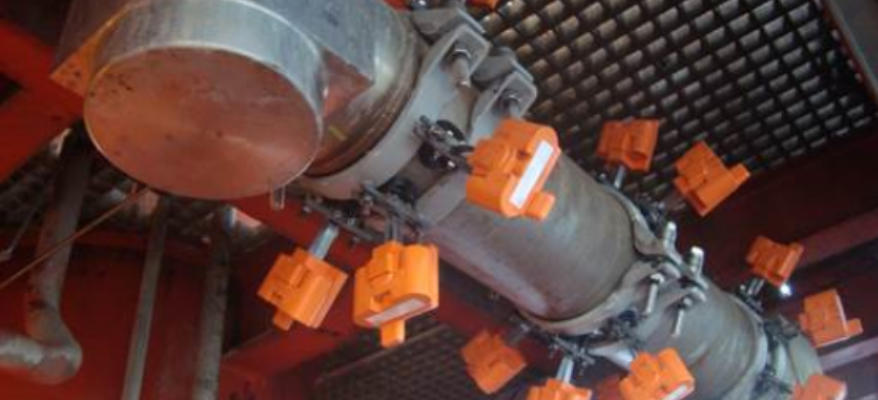
Early RCNDE research on transducer technology led to a novel concept to deal with high temperature inspection through use of strip waveguides to separate the ultrasonic transducer and electronics from hot surfaces. The approach was developed through an Imperial PhD project followed by substantial investment from BP to produce a permanently installed, battery-operated, wireless thickness monitoring system to measure the thickness of pipes and vessels semi-continuously over periods of 5 years or longer.
The system has been commercialised by Permasense Ltd, a spin-out from Imperial College, for on-line monitoring of industrial plant from -180°C (eg LNG plant) up to 600°C (eg refineries and power stations). Permanent installation of the sensors provides plant operators with much more accurate measurement of material thickness changes and trends – eg from corrosion or erosion damage – than using standard approaches, with significant safety and cost benefits. Networks of these sensors are now operating on a wide range of plant across the world.
The commercial system is shown above. The orange housing at the end of the waveguides contains the battery and electronics, including the wireless communications module. Ultrasonic waves are transmitted through one waveguide into the pipe and signals received through the second waveguide after transmission along the surface and reflection from the back wall, which provides wall thickness information.

RCNDE – an internationally renowned membership-based industrial-academic collaboration that coordinates research into NDE technologies, ensuring research topics are relevant to the medium to longer-term needs of industry.